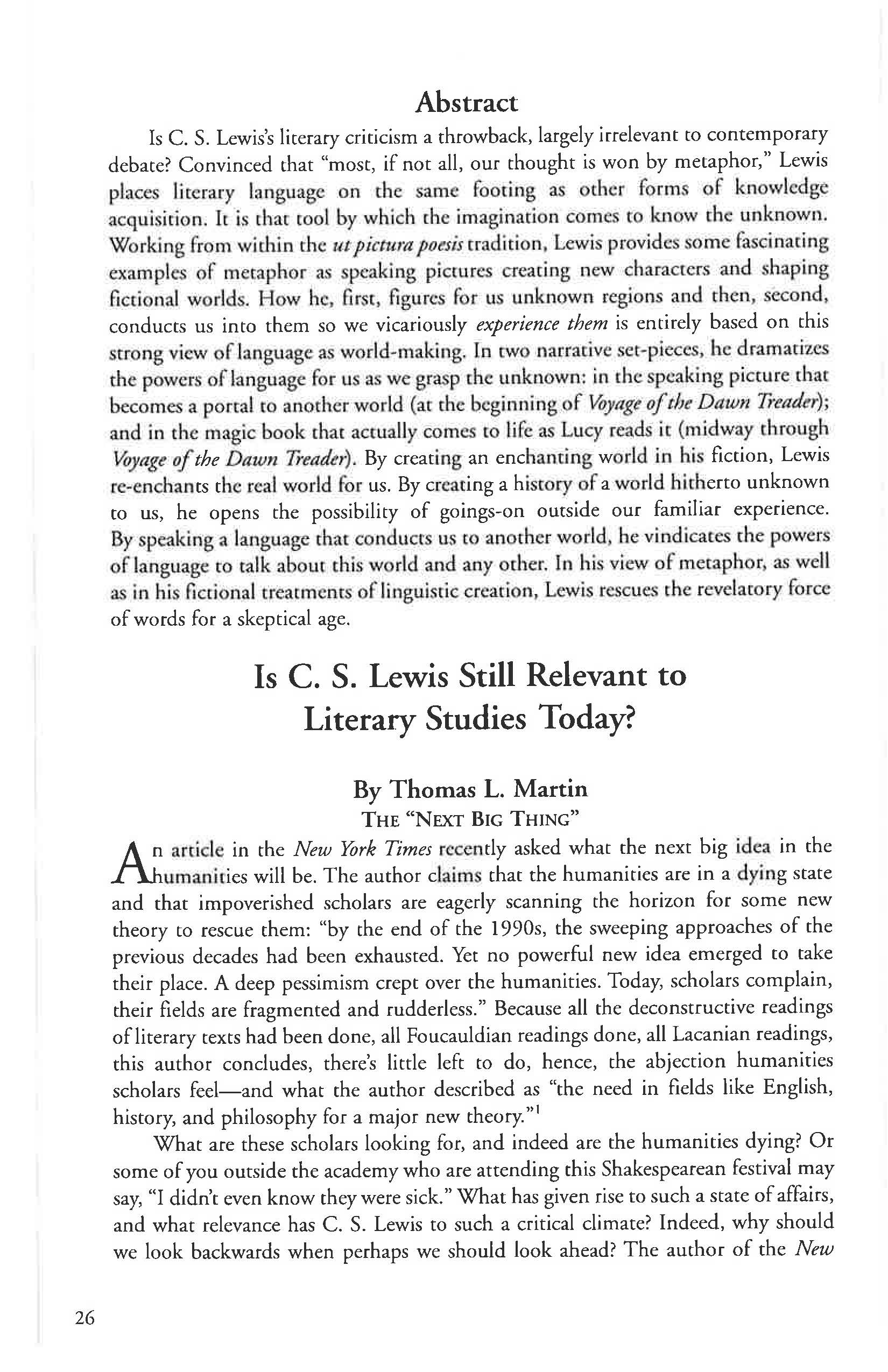Is C. S. Lewis Still Relevant to Literary Studies Today?
Main Article Content
Abstract
Is C. S. Lewis's literary criticism a throwback, largely irrelevant to contemporary debate? Convinced that "most, if not all, our thought is won by metaphor," Lewis places literary language on the same footing as ocher forms of knowledge acquisition. It is that tool by which the imagination comes to know the unknown. Working from within the ut pictura poeses tradition, Lewis provides some fascinating examples of metaphor as peaking pictures creating new characters and shaping fictional worlds. How he, first, figures for us unknown regions and then, second, conducts us into them so we vicariously experience them is entirely based on this strong view of language as world-making. In two narrative set-pieces, he dramatizes the powers of language for us as we grasp the unknown: in the speaking picture that becomes a portal to another world (at the beginning of Voyage of the Dawn Treader); and in the magic book that actually comes to life as Lucy reads it (midway through Voyage of the Dawn Treader). By creating an enchanting world in his fiction, Lewis re-enchants the real world for us. By creating a history of a world hitherto unknown to us, he opens the possibility of goings-on outside our familiar experience. By speaking a language that conducts us to another world, he vindicates the powers of language to talk about this world and any other. In his view of metaphor, as well as in his fictional treatments of linguistic creation, Lewis rescues the revelatory force of words for a skeptical age.
